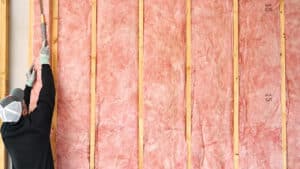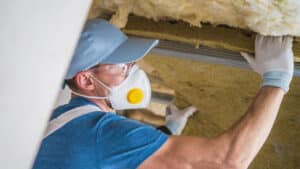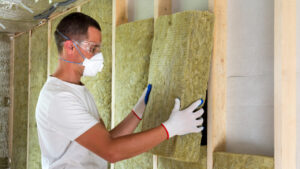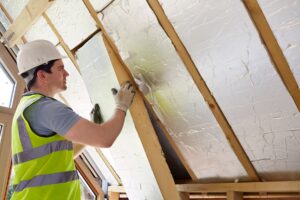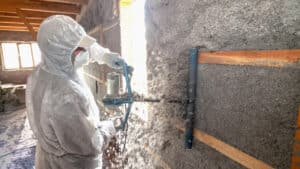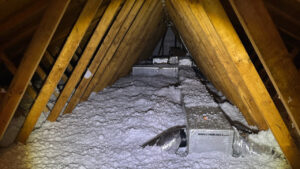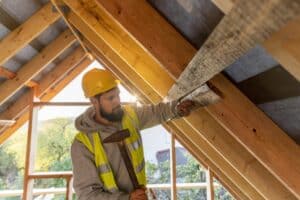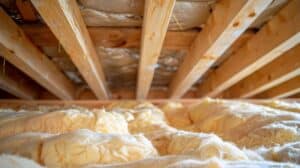Are you tired of high energy bills every month? Are you looking for ways to save money on your energy bills? One of the most effective ways to reduce your energy bills is by ensuring that your home is properly insulated. Insulation not only helps keep your home comfortable year-round but also helps to reduce your energy consumption and bills. Let’s discuss how proper insulation can save you money on your energy bills and how to go about improving your home’s insulation.
Understanding Insulation
Before we dive into the benefits of proper insulation, it’s important to understand what insulation is and how it works. Insulation is a material used to reduce heat transfer between two surfaces. In homes, insulation is used to reduce heat loss or gain through the walls, ceilings, and floors. There are different types of insulation materials, including fiberglass, cellulose, spray foam, and radiant barrier insulation. The insulation’s effectiveness is measured by its R-value, which refers to the material’s resistance to heat flow. The higher the R-value, the better the insulation’s thermal performance.
4 Major Benefits of Proper Insulation
Proper insulation can have a significant impact on your energy bills, indoor air quality, and comfort.
Benefit #1: Energy Savings
Proper insulation can lead to significant energy savings and lower monthly bills. By reducing heat loss or gain through walls, ceilings, and floors, insulation helps to keep your home at a consistent temperature, reducing the need for heating or cooling. This means that your HVAC system won’t have to work as hard to maintain the desired temperature. This results in lower energy consumption and cost savings.
Benefit #2: Improved Indoor Air Quality
Insulation can also improve indoor air quality by preventing drafts and air leaks, which can bring in outside pollutants and allergens. Proper insulation creates a barrier between your home and the outside environment, reducing the infiltration of outdoor air pollutants, allergens, and moisture. This can improve the health and well-being of your family by reducing the risk of respiratory problems, allergies, and other health issues caused by poor indoor air quality.
Benefit #3: Increased Comfort
Insulation helps to keep your home at a consistent temperature, which can increase your comfort level. Without proper insulation, your home may experience temperature fluctuations, causing discomfort and the need for additional heating or cooling. Insulation creates a thermal barrier, preventing heat from escaping during the winter and preventing heat from entering during the summer. This leads to a more comfortable home environment year-round.
Benefit #4: Reduced Carbon Footprint
Proper insulation can also reduce your carbon footprint by lowering your energy consumption. By using less energy to heat or cool your home, you are reducing the number of greenhouse gases that are emitted into the atmosphere. This means that you are doing your part to combat climate change and protect the environment for future generations. With the growing emphasis on sustainability and energy efficiency, investing in proper insulation is a wise choice that benefits both your wallet and the planet.
Signs of Poor Insulation:
It’s essential to know the signs of poor insulation in your home. If your home is poorly insulated, you may notice that your energy bills are unusually high. Uneven heating or cooling in different parts of the house may also be a sign of poor insulation. Drafts and air leaks around doors, windows, and walls are other indicators of poor insulation. Moisture problems, such as mold growth, condensation, or ice damming, can also be a sign of poor insulation.
Areas of the Home That Need Insulation:
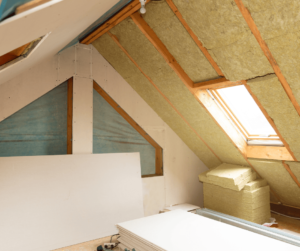 To improve the insulation of your home, you need to identify the areas of the home that need insulation. The most important areas to insulate include the attic and roof, walls, floors, crawl spaces, windows and doors, and basement and foundation. Each of these areas requires a different type of insulation material and installation method, depending on the construction of your home.
To improve the insulation of your home, you need to identify the areas of the home that need insulation. The most important areas to insulate include the attic and roof, walls, floors, crawl spaces, windows and doors, and basement and foundation. Each of these areas requires a different type of insulation material and installation method, depending on the construction of your home.
DIY Insulation VS Professional Insulation
When it comes to insulating your home, you have the option of doing it yourself or hiring a professional insulation contractor. While DIY insulation may seem like a cost-effective option, it can be challenging to install insulation correctly, especially if you have little or no experience. On the other hand, professional insulation contractors have the experience, skills, and equipment to install insulation correctly, which can save you time, money, and headaches.
Types of Insulation Installation
There are different types of insulation installation methods, including batt insulation, blown-in insulation, spray foam insulation, and radiant barrier insulation. Batt insulation involves installing pre-cut insulation batts between wall studs, ceiling joists, and floor joists.
How to Check and Improve Insulation:
To check and improve your home’s insulation, you can start by conducting an energy audit. An energy audit is an assessment of your home’s energy use and identifies areas of inefficiency. You can conduct a DIY energy audit by checking for air leaks around doors and windows, inspecting insulation in the attic and walls, and checking for moisture problems. Alternatively, you can hire a professional energy auditor who can conduct a more thorough assessment using specialized equipment.
Tips for improving insulation include sealing air leaks around doors and windows, adding weatherstripping to doors and windows, installing insulation in the attic and walls, and insulating the basement and foundation. Regular maintenance of your HVAC system, such as cleaning or replacing air filters, can also improve its efficiency.
Conclusion:
Proper insulation is a critical component of reducing your energy bills and improving your home’s comfort and indoor air quality. By understanding insulation, its benefits, and the signs of poor insulation, you can identify areas of your home that need insulation and choose the right insulation installation method. Whether you choose to do it yourself or hire a professional insulation contractor, improving your home’s insulation can lead to significant energy savings, improved indoor air quality, and a more comfortable home.
By taking the time to improve your home’s insulation, you not only save money. You can also reduce your carbon footprint and contribute to a more sustainable future.

